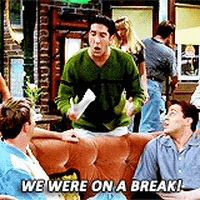
And Now We are Back!
Hello and welcome to The Wisdom Project. Your weekly dose of human curated wisdom in a world full of algorithmic noise.
There’s a slight change in our format from this week. You see, most of our subscribers use gmail, some are still on the good old Yahoo, and some are even on Hotmail. (You know who you are :P) , but most are on gmail.
Point being, gmail doesn’t like our mails, actually, it doesn’t like a lot of links and images in them and often dumps them in the promotions tab. And you know the thing about the gmail’s promotions tab— its worse than the second page of Google, nobody goes there!
Anyway, if you have subscribed to us for a while, then you know all of our newsletters are full of links and images.
That is our core offering. We curate awesome stuff on the internet. And no, we don’t promote anything, yet gmail’s algorithms don’t get that.
So from now on we will be sending out just the introduction of our posts via email, and we will share a link at the bottom where you can read the whole post. It will be a bright orange button, you’ll manage to find it!
Just hit that button and read the whole thing.
So, without further ado, lets get into this week’s post—

“A collection of facts is not the truth”
How do you know if a piece of information is true or false?
Do you take it at face value? Just because its “published” in a book, in a newspaper or on a page on the internet?
Or do you go to the source yourself and verify it?
Verification is easy if the information is within your circle of influence, if it pertains to places and people you know and care about deeply.
Of course, this strategy is not scalable.
What happens when the information is regarding events from across the world? What do you do when you’re told that a leader on the other side of the planet is planning to sabotage your country?
And what do you do when you find out that a deadly virus is spreading across the world which can potentially harm your own life someday?
How do you verify this kind of information?
Do you rely on the “publisher” of the information then?
And how do you judge the efficacy of the publisher? Her incentives, biases and down right incompetence may cause her to distort the information, right?
Heck, the very process of her trying to explain an event in her own words will miss some of the tiny nuances of a story. The nuances that may be critical to understanding the event better.
Journalists had been the purveyors of information since the invention of writing and the proliferation of the printing press.
Over centuries their role evolved into becoming the gatekeepers of truth, as well as the perpetrators of falsity.
Journalists were all we had for a long time.
Rest of us mere mortals relied upon them to tell us how to think and even what to think about a particular issue. We had to trust them to tell us what was right, what was wrong, and more importantly, what was true and what was false.
Sometimes we were well guided, but at other times we were misled.
The internet has changed that. Massively.
Today everyone on the internet is a publisher. We all have a large megaphone in our pockets that we can use to shout out to the world what we think is the truth.
This has led to a sea of misinformation, disinformation, rumor mongering, conspiracy theories and fake news on the internet.
Of course amidst the vast sea of falsehood there are still some islands of truth. Some islands still guarded by old time journalists, and some by brand new fact checkers.
The nature of the dissemination of information has changed completely over the last 20 years, and our journalists must adapt with it, or they risk becoming obsolete. More importantly, we need them to step up right now more than ever, in the middle of an infodemic.
Today on The Wisdom Project, we take a look at how to tackle viral news in the times of a pandemic. We try to understand why the news industry is failing, and what can we do about it.
And we see how we can protect the truth in the age of misinformation.
Read On.
This was Wisdom Letter #44. Tell us what you liked or disliked about today’s letter. We really appreciate all the responses that we get and are hungry for more. Hit reply and lets get talking.
Thanks for reading, see you next Sunday.
Ciao
Aditi & Ayush
Disclaimer:
None of the links that we share here are affiliate links. We don’t intend to make money off of your purchases of any books or products that we recommend. These are honest recommendations that have worked for us and we share them without any ulterior motives.



